Deregulation Could Mean Businesses Pay More for Data
by Stephanie Faris on Wednesday, April 26 12:00
From IP phone systems to videoconferencing to reading and responding to email, businesses rely heavily on the data lines that power their internet.
A new decision from the Federal Communications Commission (FCC) may have a serious impact on the amount those businesses pay each month, however.
Last week, the FCC voted to deregulate business data services, freeing up internet providers to set rates as they see fit.
Small businesses could be especially affected by the ruling, since even the slightest monthly increase can stretch already tight budgets.
But the good news is that without regulation, competitors can move in and offer a lower rate for the same service, which could lead to even lower prices in the long run.
In Favor of Deregulation
Those who support the bill say the goal is less regulation overall, which opens the door for businesses to compete for customers.
Those who sponsored the bill said that deregulation actually stifles
internet service providers, keeping them from improving the services they provide to their customers.
The regulations also kept new companies from entering the market, resulting in the very type of monopolies that keep costs high for customers.
They also emphasize that this deregulation applies specifically to the companies that provide business data services, so those who subscribe to home internet services won't be directly affected by the change.
Schools, hospitals, and some organizations also aren't served by the business data services industry and won't see any change in their prices or services.
Against Deregulation
Price increases are the biggest concern for opponents, with some critics predicting that costs will rise by as much as 25 percent for small and midsized businesses.
Businesses of all sizes will likely pass these extra costs onto their own customers, meaning that customers could soon pay more at ATM machines and retailers,
since those industries rely on data connections to serve their customer bases.
For businesses, this means they'll not only pay more for their own internet services, but they'll likely see a price hike from their vendors who are dealing with passing on rising overhead costs.
For businesses in areas with only one or two major internet providers may never see the reduced cost that comes from competitors battling it out.
Some of those businesses have bulk discounts for their multiple locations or monthly usage, leading to questions about whether or not those discounts will go away once deregulation goes into effect.
According to Arts Technica, AT&T had already scheduled a 15-percent increase to take effect once the FCC's vote to deregulate was final in certain states.
Previously, AT&T and other providers have complained about the rate they were having to pay due to regulations.
It will likely take time before businesses know just how much of an effect deregulation had on their prices.
Even if prices increase immediately with some providers, if the change opens up opportunities for competitors to sweep in and offer businesses lower prices, they may find they're paying less than ever before, thanks to deregulation.
